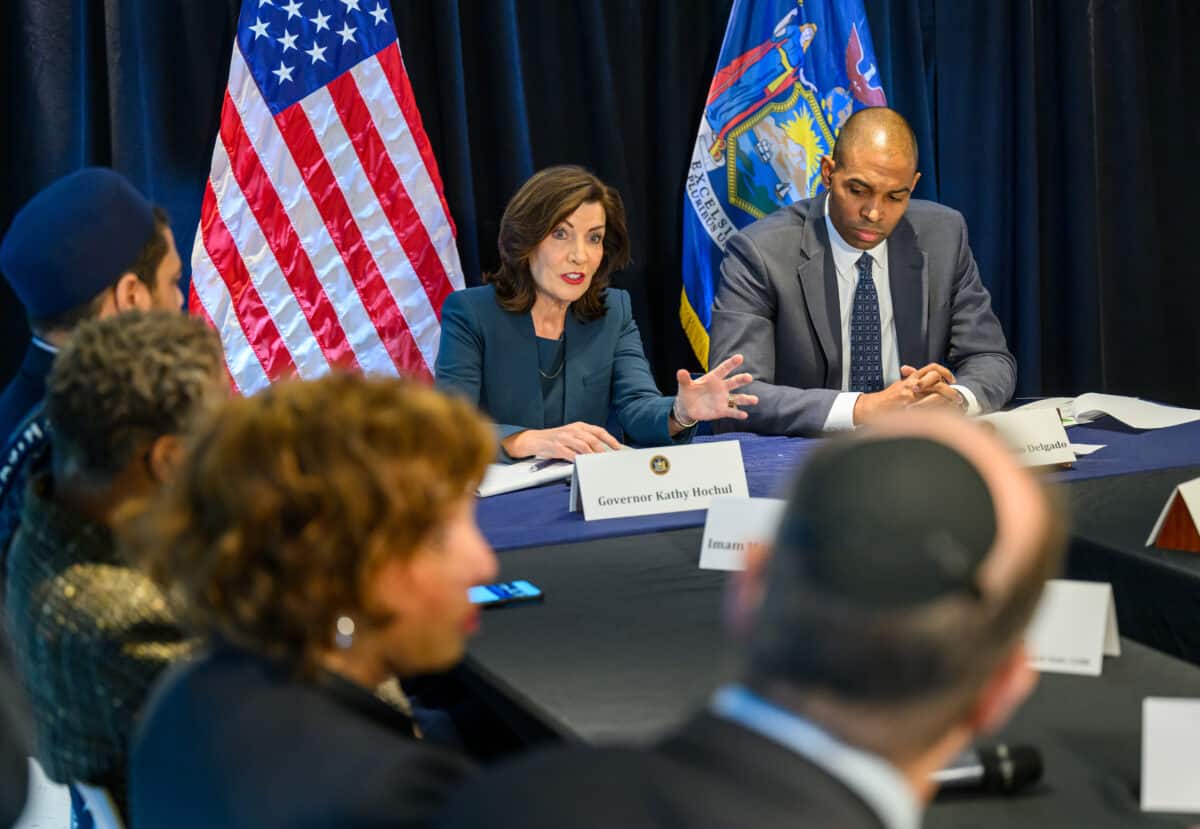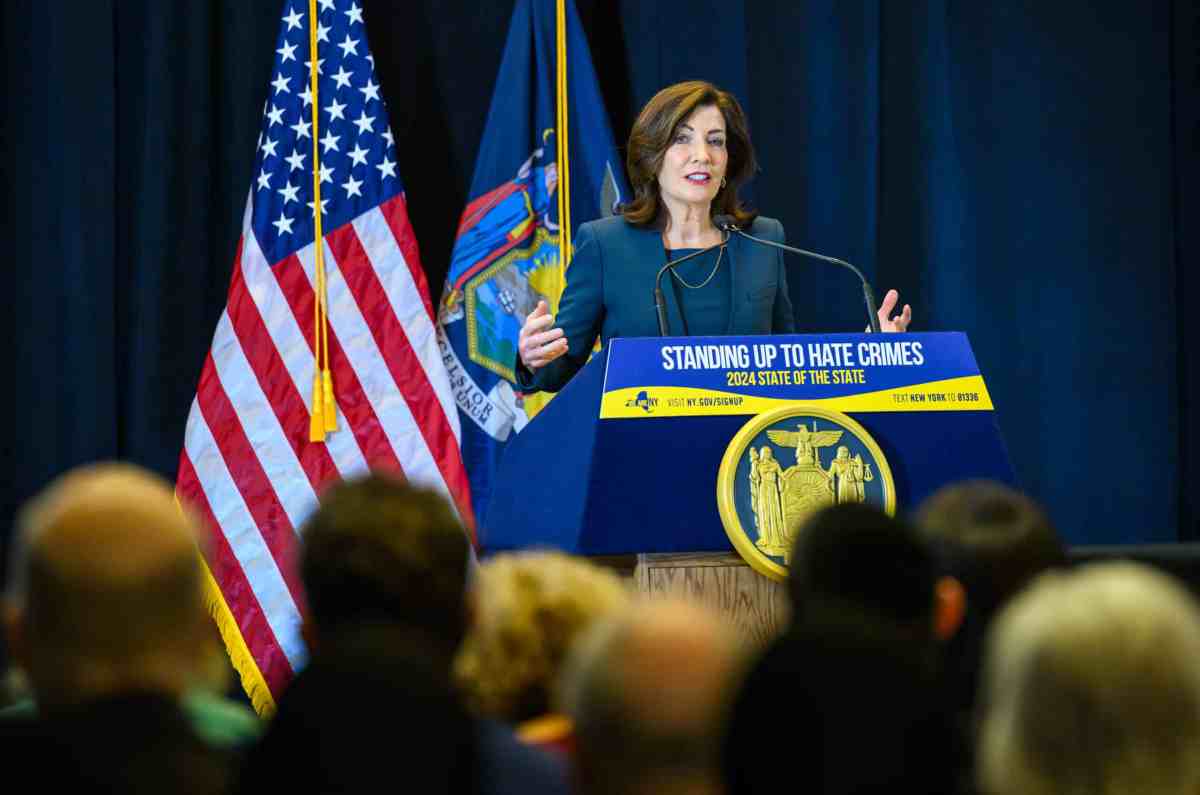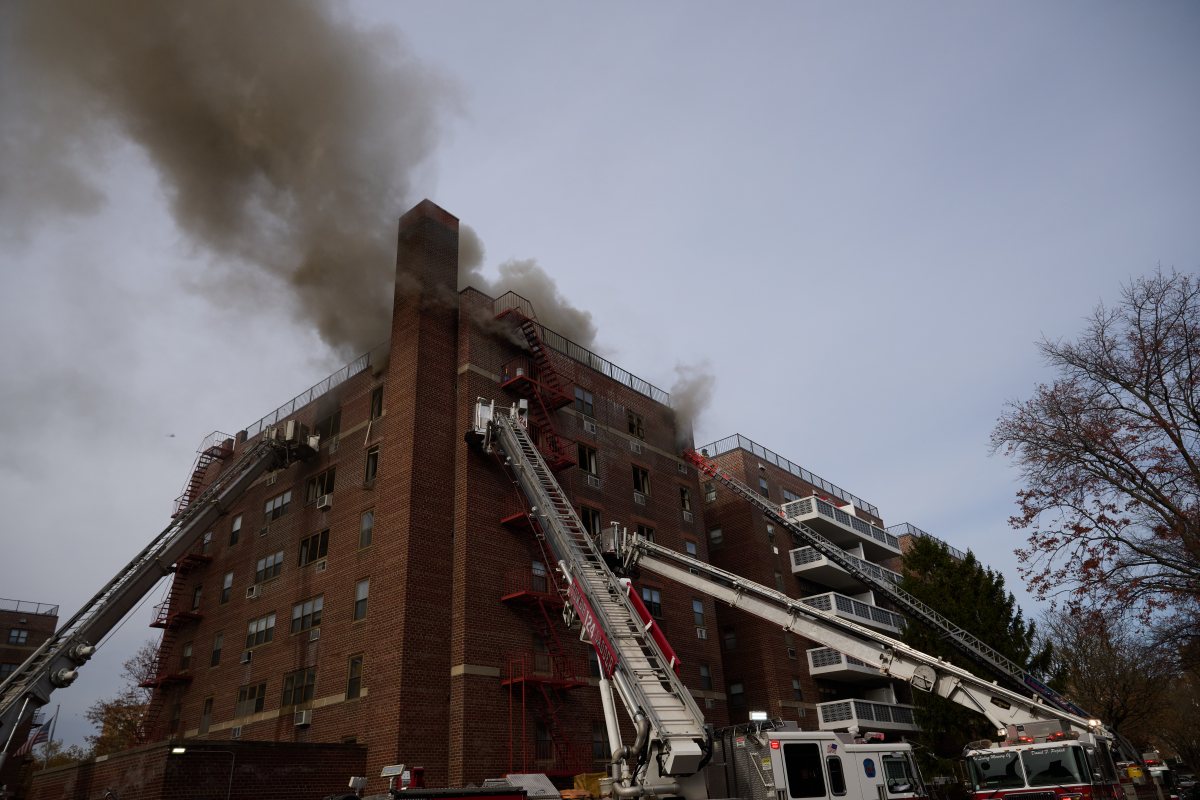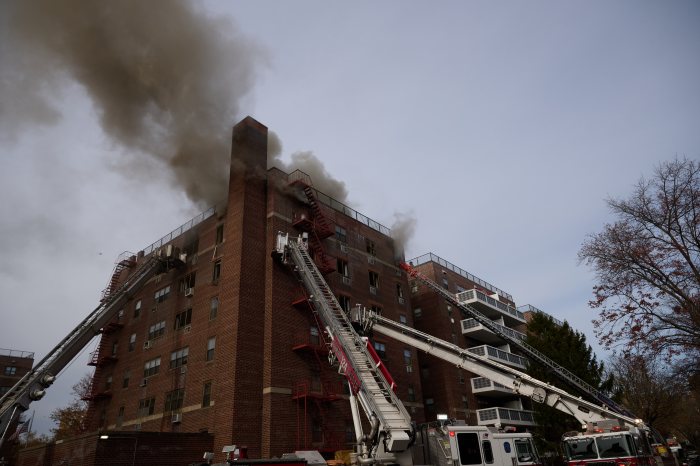Following a major rise in hate crimes across New York state, Gov. Kathy Hochul on Thursday proposed expanding the list of charges that can be prosecuted as bias-motivated offenses, and announced millions in new funding to protect vulnerable institutions across the Empire State.
“The rising tide of hate is abhorrent and unacceptable – and I’m committed to doing everything in my power to keep New Yorkers safe,” Gov. Hochul said in a statement.
According to the most recent statewide data, the number of hate crimes in the state increased by a stunning 90% between 2020 and 2022 — with another major jump coming after Oct. 7, 2023, when Hamas launched a series of terrorist attacks against Israel and kicked off a war in Gaza.
In New York City alone, the NYPD saw 230 hate crimes on the streets of the five boroughs between early October and the end of December 2023 — marking a 43% uptick from the 161 such crimes that occurred during the same time last year. The majority of those incidents were classified as antisemitic.
“Since the despicable Hamas attacks of Oc. 7, there has been a disturbing rise in hate crimes against Jewish and Muslim New Yorkers,” Hochul said. “[And], in recent years, we’ve seen hate-fueled violence targeting Black residents of Buffalo and disturbing harassment of AAPI and LGBTQ+ individuals on the streets of New York City. We will never rest until all New Yorkers feel safe, regardless of who they are, who they love, or how they worship.”
While statewide data for 2023 is not currently available, police and sheriff departments across the state reported 959 hate crimes in 2022 — the most since 2017, and a 20 percent increase compared to 2021.
In an effort to tackle the growing problem, Hochul has proposed legislation that would expand the list of offenses eligible for prosecution as hate crimes.
While only 66 offenses are currently eligible to be classified as hate crimes, Hochul has asked state lawmakers to add 34 more offenses — including vandalism, arson, gang assault, first-degree rape, criminal possession of a weapon, and sex trafficking.
While those are already crimes, the ability of prosecutors to classify them as hate crimes could allow them to seek harsher punishments, and possibly get convictions at higher rates than they currently can.
“As we witness an unprecedented rise in bias-motivated crimes against Jewish, Muslim, Asian American and LGBTQ people, it’s of utmost importance that New York closes the dozens of loopholes in our hate crime statute to send the urgent message that hatred won’t be tolerated in our state,” said Manhattan state Sen. Brad Hoylman-Sigal.
Boosting nonprofit security

In addition to the changes in the criminal justice laws, Hochul also used the opportunity to announce that she is seeking millions in new funding, through the Securing Communities Against Hate initiative.
While the governor secured $25 million in additional funding for the program in Fiscal Year 2024, she is looking to boost that funding to $35 million for the Fiscal Year 2025 — marking a combined $60 million over the next two budget cycles.
The state funding goes towards helping nonprofit organizations in New York to improve the security of their facilities, which helps to protect against the risk of hate crimes.
Eligible organizations can request up to $200,000 each, and can be used for physical security and cybersecurity projects, Hochul said.
Organizations that have previously received security grants under the program, according to the governor’s office, could reapply for greater levels of funding.
Established in 2017, the Securing Communities Against Hate Crimes Grant program is open for applicants that run nonprofit community and civic centers, cultural museums, day care centers, and other nonprofit organizations that may be vulnerable because of their ideology, beliefs, or mission.
Around 300 projects are expected to be given funding through the program, and will result in improvements to “lighting, locks, alarms, panic buttons, fencing, barriers, access controls, shatter-resistant glass and blast-resistant film, public address systems, strengthening cybersecurity, and impact protection enhancements,” the governor’s office said.
Maria Imperial, the Commissioner of the state’s Division of Human Rights, hailed the move as a major win for organizations fighting against a wave of criminal bias.
“Sadly, we are seeing the need for greater security at nonprofit and faith-based community centers that are becoming targets of hate,” said Imperial. “Everyone – no matter their religion or national origin – should feel safe when they connect with their community, family, friends and neighbors.”
The deadline for applicants to seek funds through the Securing Communities Against Hate Crimes Grant program is May 17, and more information about eligibility can be found at the Division of Criminal Justice Services website.
“New York State has a long and storied tradition of embracing people from all cultures and walks of life, yet too many individuals, groups and organizations remain targets for crime because of the very diversity they embody,” said Division of Criminal Justice Services Commissioner Rossana Rosado. “DCJS is proud to help protect our neighbors and communities against hate crimes by providing funding to organizations that know their neighborhoods best so they can continue to safely provide services and safe places for those who may be at risk.”





































